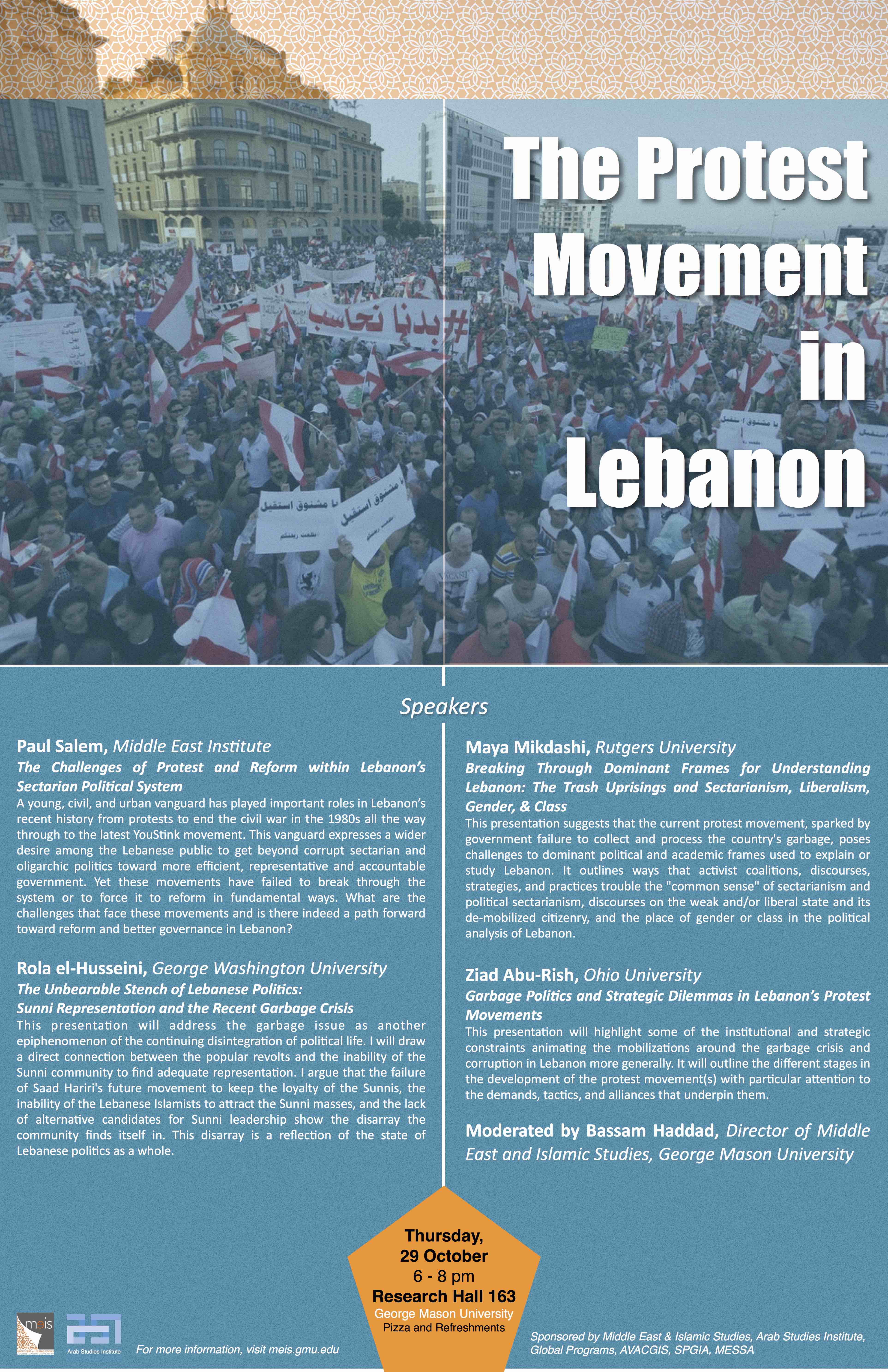The Protest Movement
in Lebanon
Thursday, 29 October 6 - 8 pm
Research Hall 163
George Mason University
Pizza and Refreshments Served
Paul Salem, Middle East Institute
The Challenges of Protest and Reform within Lebanon’s Sectarian Political System
A young, civil, and urban vanguard has played important roles in Lebanon’s recent history from protests to end the civil war in the 1980s all the way through to the latest YouStink movement. This vanguard expresses a wider desire among the Lebanese public to get beyond corrupt sectarian and oligarchic politics toward more efficient, representative and accountable government. Yet these movements have failed to break through the system or to force it to reform in fundamental ways. What are the challenges that face these movements and is there indeed a path forward toward reform and better governance in Lebanon?
Maya Mikdashi, Rutgers University
Breaking Through Dominant Frames for Understanding Lebanon: The Trash Uprisings and Sectarianism, Liberalism, Gender, & Class
This presentation suggests that the current protest movement, sparked by government failure to collect and process the country`s garbage, poses challenges to dominant political and academic frames used to explain or study Lebanon. It outlines ways that activist coalitions, discourses, strategies, and practices trouble the "common sense" of sectarianism and political sectarianism, discourses on the weak and/or liberal state and its de-mobilized citizenry, and the place of gender or class in the political analysis of Lebanon.
Rola el-Husseini, George Washington University
The Unbearable Stench of Lebanese Politics:
Sunni Representation and the Recent Garbage Crisis
This presentation will address the garbage issue as another epiphenomenon of the continuing disintegration of political life. I will draw a direct connection between the popular revolts and the inability of the Sunni community to find adequate representation. I argue that the failure of Saad Hariri`s future movement to keep the loyalty of the Sunnis, the inability of the Lebanese Islamists to attract the Sunni masses, and the lack of alternative candidates for Sunni leadership show the disarray the community finds itself in. This disarray is a reflection of the state of Lebanese politics as a whole.
Ziad Abu-Rish, Ohio University
Garbage Politics and Strategic Dilemmas in Lebanon’s Protest Movements
This presentation will highlight some of the institutional and strategic constraints animating the mobilizations around the garbage crisis and corruption in Lebanon more generally. It will outline the different stages in the development of the protest movement(s) with particular attention to the demands, tactics, and alliances that underpin them.
Moderated by Bassam Haddad, Director of Middle East and Islamic Studies, George Mason University
Sponsored by Middle East and Islamic Studies and Arab Studies Institute. Visit meis.gmu.edu
OPEN TO THE PUBLIC
Sponsored by Middle East & Islamic Studies, Arab Studies Institute, Global Programs, AVACGIS, SPGIA, MESSA
